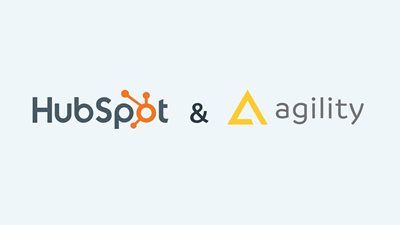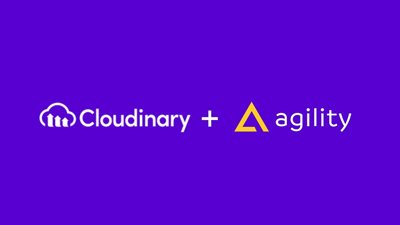Agility CMS Partners With HubSpot for Composable DXP
A composable DXP with Agility CMS and HubSpot


Agility CMS, an API-first Enterprise-grade headless CMS, has launched an integration with HubSpot to enable Agility users to easily add landing pages to their website with HubSpot Forms.
As an industry-leading sales and marketing platform, HubSpot is known for its customer relationship management software. HubSpot Forms enable companies to learn more about their visitors and integrate with existing contacts databases so that they can keep track of leads.
“Sales and marketing teams need easier ways to collect and leverage valuable customer data in the form of leads and conversions. HubSpot has been a major player in that regard for quite some time, and our partnership will allow enterprises to be more effective by integrating a critical tool with their content from Agility,” said Joel Varty, CTO at Agility CMS.
This latest integration will combine Agility’s hybrid headless capabilities with HubSpot’s all-in-one marketing automation and CRM solution to create an effective composable DXP solution for their clients. As a result, users will be able to:
- Track customer journeys, send emails, and collect form data
- Measure the performance of all marketing campaigns in one place
- Create forms in HubSpot and have editors quickly select and add Forms to pages to start collecting Form Data
- Automate their marketing flow to help grow traffic, convert visitors, and run marketing campaigns.
Agility CMS provides the latest integration tools to create an enhanced user experience for their customers. Following previous partnerships with Netlify, Cloudinary, and Vercel, Agility CMS embraces the concept of composable architecture by providing access to industry-leading software tools.
Agility CMS has been named a Leader by G2, the leading business software review platform, in its recently released Winter 2022 Report for Headless CMS.
About Agility CMS
Agility CMS is an API-first, Enterprise-grade headless CMS that enables marketing and development teams to create and manage content across their digital properties. The CMS’ hybrid approach reduces the creative limitations and security concerns created by the legacy and pure headless CMS platforms. It provides complete creative freedom for web developers while retaining familiar authoring tools to editors and content creators.

About the Author
Joel is CTO at Agility. His first job, though, is as a father to 2 amazing humans.
Joining Agility in 2005, he has over 20 years of experience in software development and product management. He embraced cloud technology as a groundbreaking concept over a decade ago, and he continues to help customers adopt new technology with hybrid frameworks and the Jamstack. He holds a degree from The University of Guelph in English and Computer Science. He's led Agility CMS to many awards and accolades during his tenure such as being named the Best Cloud CMS by CMS Critic, as a leader on G2.com for Headless CMS, and a leader in Customer Experience on Gartner Peer Insights.
As CTO, Joel oversees the Product team, as well as working closely with the Growth and Customer Success teams. When he's not kicking butt with Agility, Joel coaches high-school football and directs musical theatre. Learn more about Joel HERE.
View Related Resources

